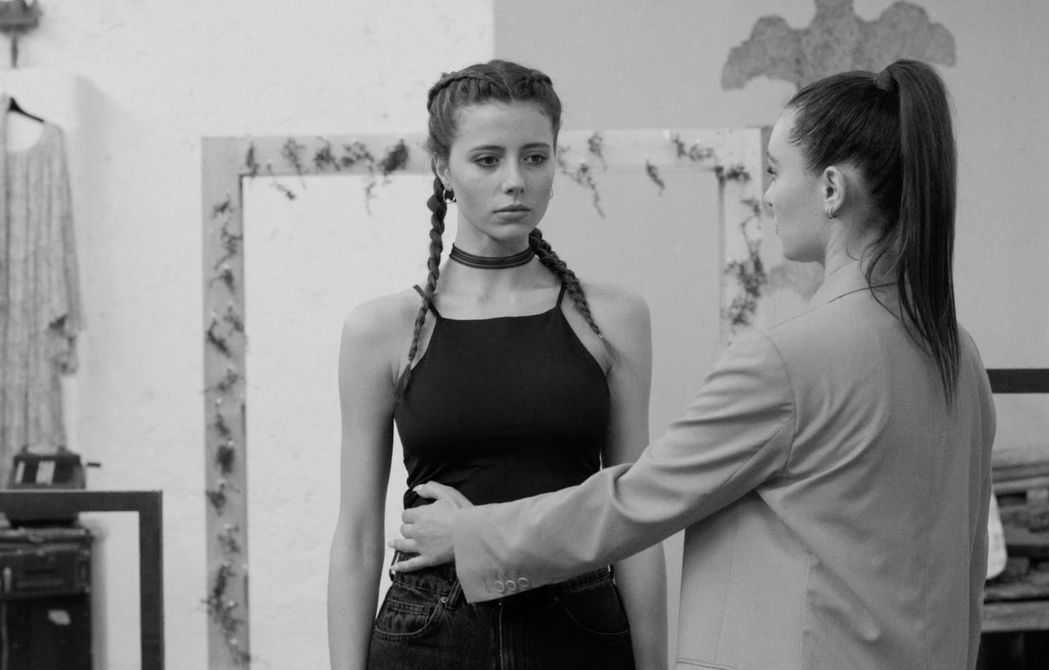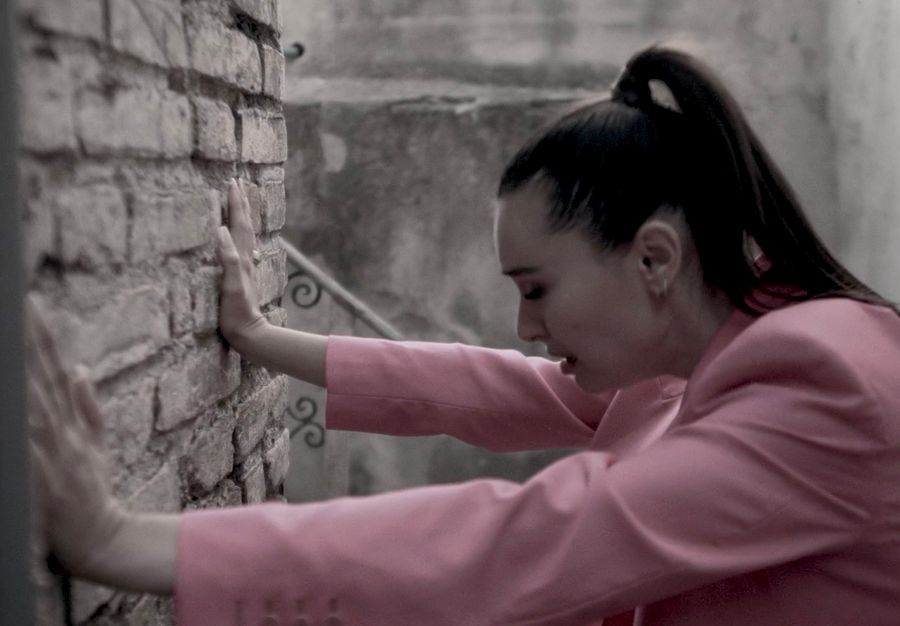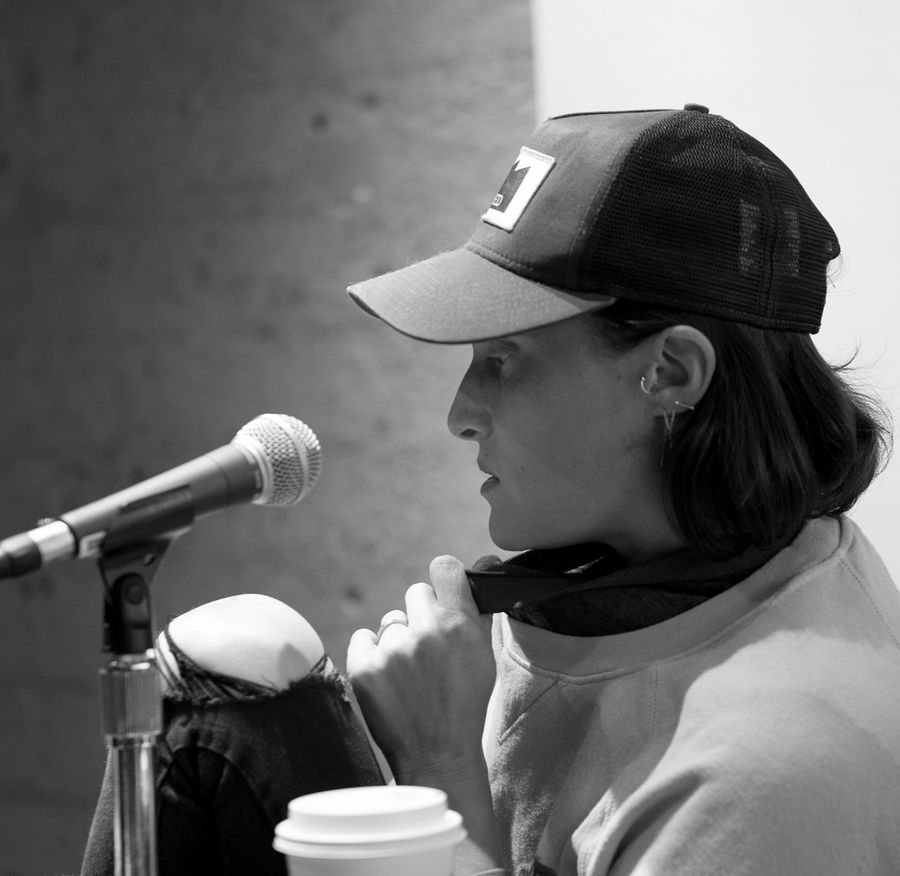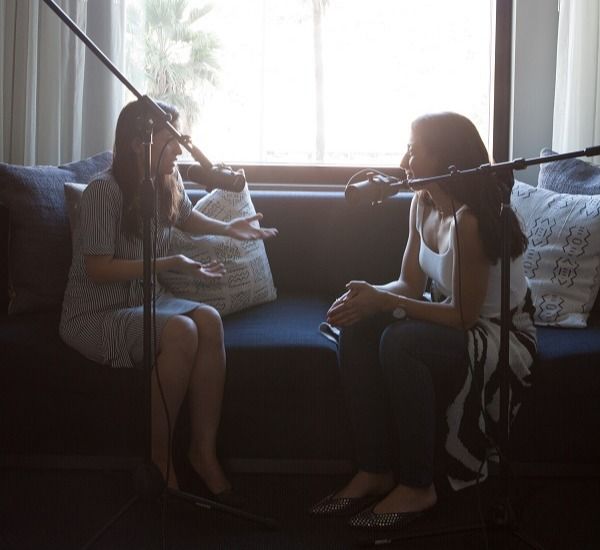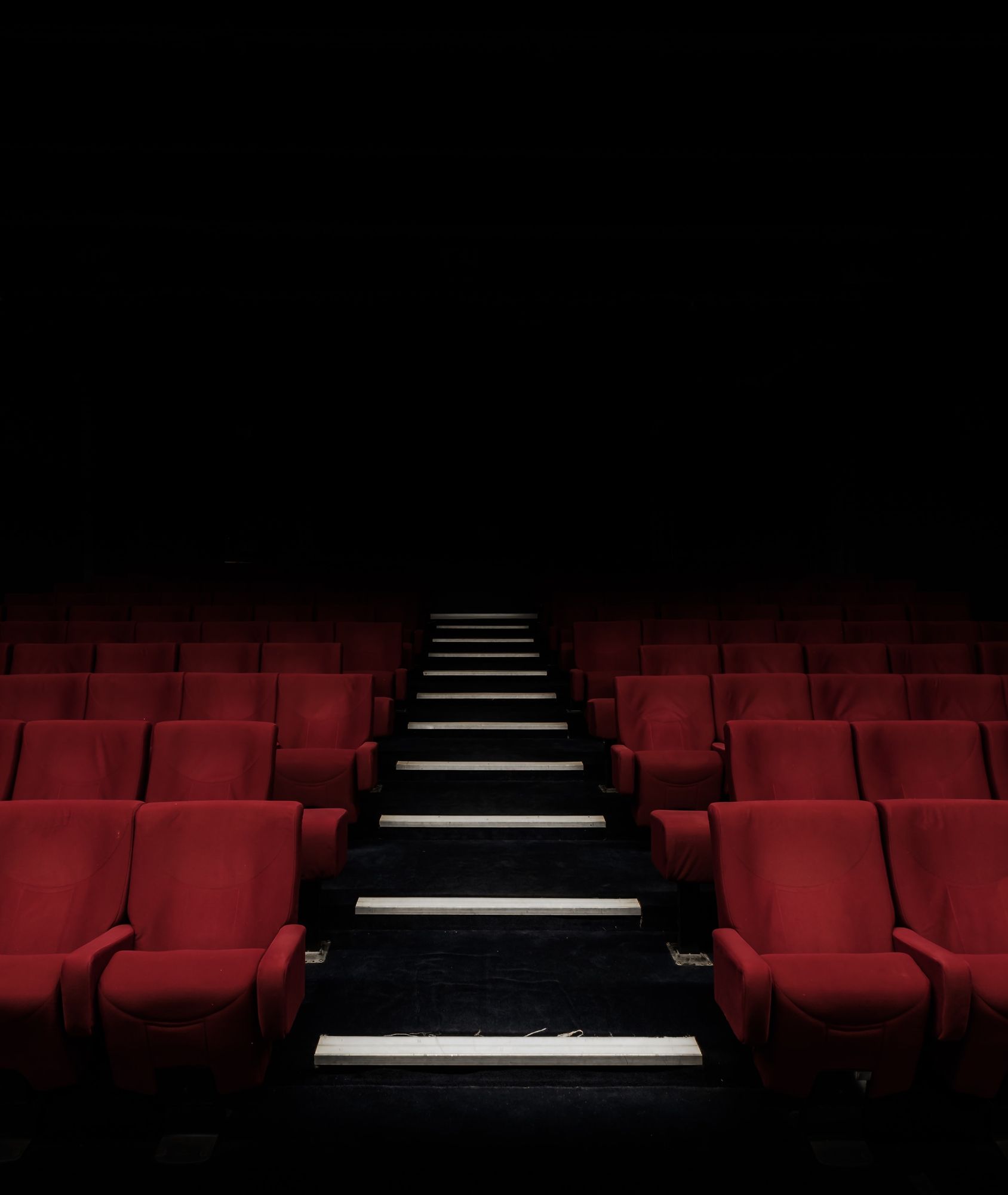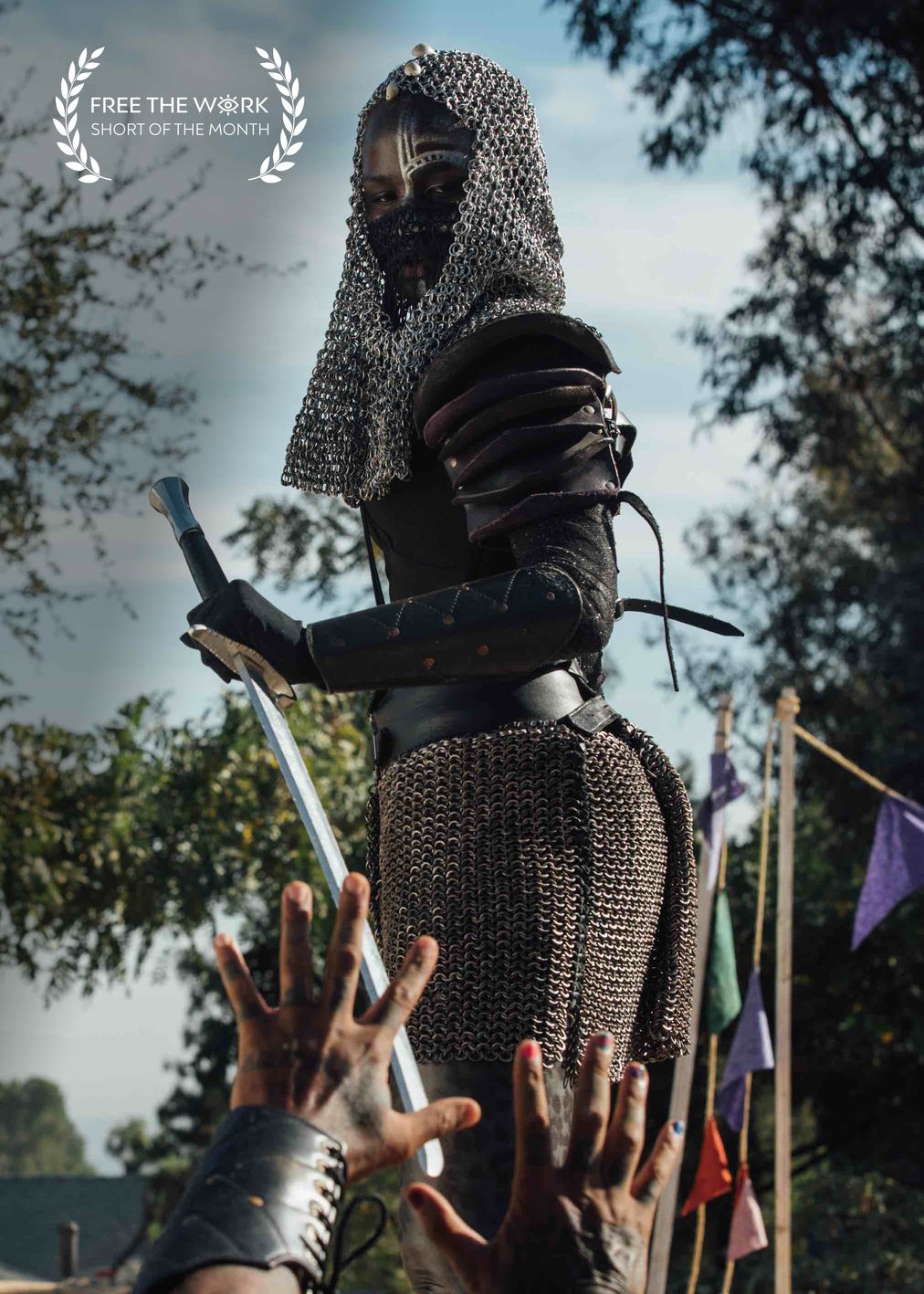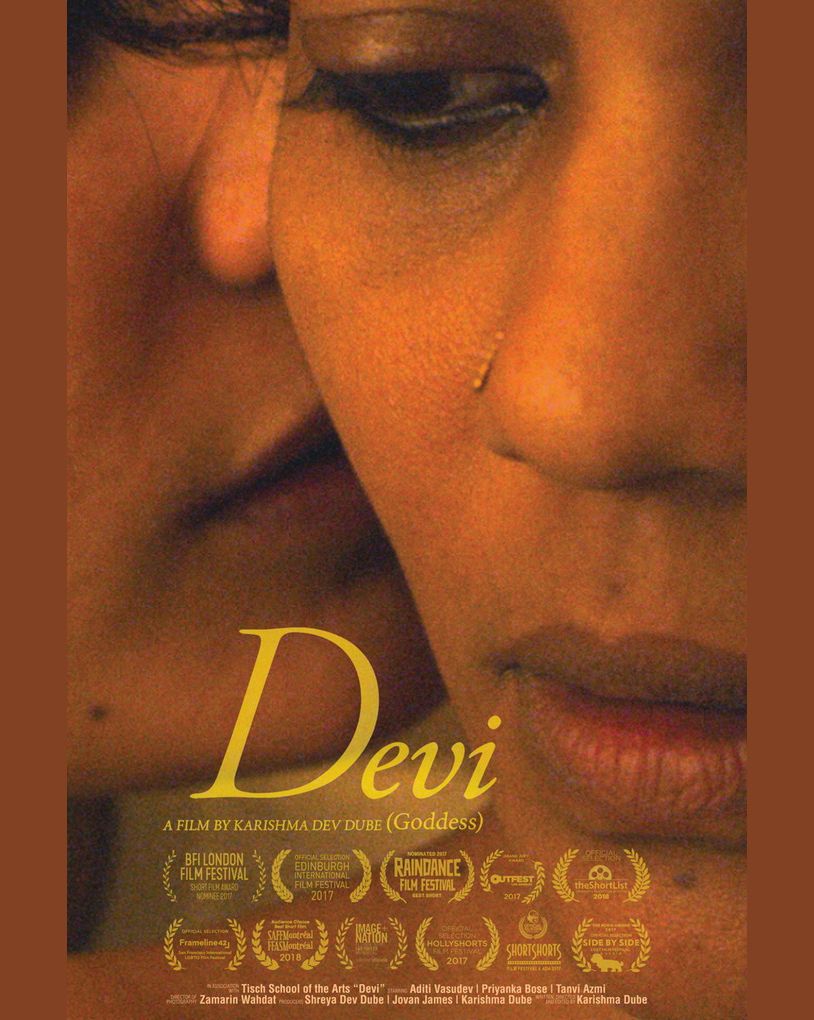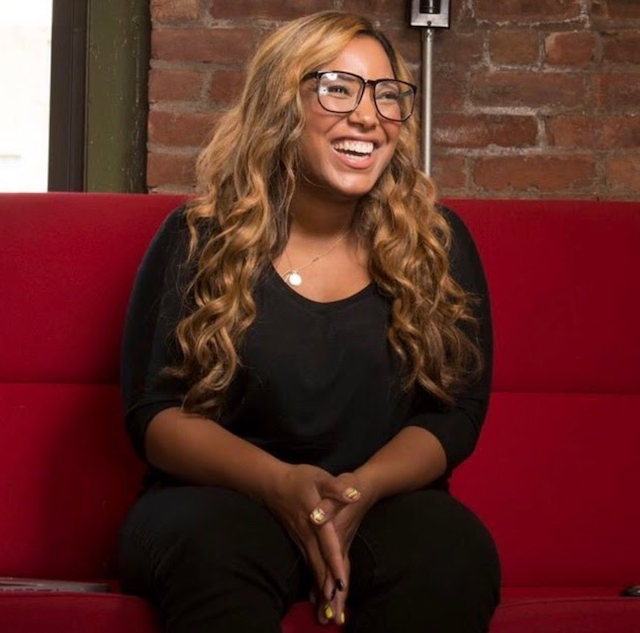Photos from "Next One"
Pulling Focus is a FTW interview series that spotlights established creatives who are making brave new career pivots with recent work.
You may know Italian influencer Marta Pozzan from some of the notable fashion campaigns of late, including Kenzo. You may have seen her covers for Vanity Fair Italia and more. You may have viewed her Italian-language TedX talk on the business of social media. You might have seen her VR-based short on mental health, "Turn on the Light," which she starred in. Or, you may have read her recent editorial essays, including one for Poosh, entitled "How I Got My Panic Attacks Under Control."
Now, the self-proclaimed mental health advocate is using her platform to tell narrative stories on screen on the issues closest to her, beginning with her self-funded/produced short, co-created with Guglielmo Poggi, which sheds a light on abuse in the modeling industry. While it's still making festival rounds, check out out its online debut below.
FTW: What inspired the story?
Marta Pozzan: I was talking to [Guglielmo] about breakups and he was just so depressed, so I said, "Let's just make a short, let's just get creative and use this energy to make something great." And he was like, "I am so sick of this industry." And I'm like, "Tell me about it." It's true—it gets hard, and you feel powerless. So he just said, “Why don't we just make a short where you're so powerful and strong? Where you've been through something so traumatic, but you came out of it so strong?”
So we just started writing. Initially—and I’ll write this eventually—I just wanted it to be about this girl who's so over guys and the way that she's sexualized by the world, so she starts paying them for sex. She makes them do only whatever she wants them to do, almost to feel like she's never going to have to face that abuse anymore because she can control it. And Guglielmo was like, “How about we just cover the whole topic of abuse in the work space and how these young girls that you talked to, that you've influenced with your platform are being maybe treated in some ways?”
It’s a painful reality. Some girls do get slapped when we go to casting and it's insane. Everything you see in the short are also stories we’ve heard from people we know. I’ve heard this quote once, the broken ones are the more elevated, and I really believe that.
From my personal experience, the kind of abuse that I've been through, the abuse that made me feel wrong and unworthy, made me much more open because the more I worked on it, the stronger I became. To me, there shouldn't be shame in showing your trauma. If I share my trauma and you share your trauma, we can feel we're human together.
How did you start and what led you up to this point now, being a screenwriter?
I was a ghostwriter for this journalist at Vanity Fair back in Milan when I was 19. I thought that was the shit, like The Devil Wears Prada. I just was so nerdy as a kid and I wanted to write but I didn't know what exactly. I was writing little poetry and stories. But then, when I moved to Milan for college, I got into fashion and started hosting and modeling, which brought me to the U.S.
But throughout that whole time I thought, there has to be some way to combine all these things, creating content that matters—not just talking about clothes and shoes. But I decided I'll use it until I can develop a platform where I can share what I'm really here to share, which is my story, my experience, my voice, and then amplify other people's voices.
When I got here and got signed to Next Models, I started doing commercial work. Two years ago, I booked this job for Kenzo and it aired everywhere. It was such a cool commercial; the whole message was about creating a better world, making friends with your neighbors. It made me realize that there are brands that care. I was struggling to find brands that just wanted more than just pictures, so it made me hopeful.
From there, I started trying to utilize the connections with the brands that I worked with to create content that was more about what I wanted to talk about, like a short I wrote for Diesel about the [connection] between two girls. Although, "Next One" is not a branded video at all, it's just a short that I produced and paid for, with my own money.
I'm just ready for whatever it takes, how many more months or years to tell the stories I want to tell. Ideally, my ultimate goal to be a female Ramy [Youssef]. I want to be able to tell stories that are close to home, but also encourage other people to share their voices.
What sparked your interest in mental health advocacy?
I was struggling a lot as a kid with my mental health. I had these panic attacks since I was 13. I didn't know what they were; I was just dealing with them daily. So whenever I was around groups of people, I'd be freaking out and thinking that I would just vomit everywhere, that was my phobia. It would come up every day and it would make me not eat. Throwing up felt so shameful to me because of what we've been trained to believe. Now I realize it was a metaphor for letting something out.
So when I was 17, I was just so over it that I finally opened up to someone about it—my friend's mom, who is a psychotherapist. I could barely talk about it, about how deep it was. She suggested I’d go to therapy. I knew it, but I needed to go to someone that did that to validate my experience. [I realized] that they stemmed from this sense of having to be in control of all the situations around me, 'cause I didn’t feel safe at times. Like always alert and alarmed. And so I developed PTSD from that and panic attacks from being over controlling of my surroundings.
I didn't have the tools and the knowledge and experience to talk about my struggles openly and to help people, but I do now. Funny enough, sometimes girls randomly will hit me up and ask me about therapy, about what they should do for this or that. If even just by sharing a story or something on Instagram, I can inspire someone to start their journey of taking care of their mental health, that makes me so happy. To me, that's what movies should be about; they should help you with something and bring light to something about your life.
How was putting the short together a healing process for you, if at all?
It felt magical in a way. Sometimes it's so hard when you have a vision to really make it happen, and we did. It gave me hope to be doing more in the film and TV space my way, which I didn't have so much before. I always felt compromised.
Some of the girls on set, this was their first acting gig, so they were asking me all these questions, and I was just sharing my experiences, which made them feel more open. We created our own little safe community. I don't think people realize that to talk about this stuff, you have to first create a safe space for people to be able to open up to you. Because then you feel tokenized and you're like, "Oh, are you just trying to get that story out of me? I'm good."
"Next One" isn't something that we made because of being abused. It's something that we, me and the director, made because we just feel connected to it.
As a mental health advocate, are there any tangible things that you would really like to see change?
It's definitely a bigger conversation. And so every time I can say something about it either with my brand work or my writing, I’ll do it. I also wish and encourage other creatives like me who have a platform that reaches a lot of people to pick a cause, to share their stories, because it only helps other people to do the same.

